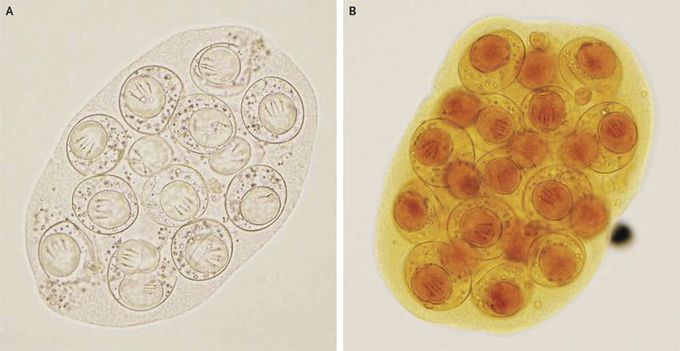


Dipylidium caninum Infection
A 2-year-old girl presented to the pediatric infectious disease clinic with visible worms in the stool and mild perianal pruritus. Tests for ova and parasites in the stool were initially negative. The patient’s mother reported that several pet cats in the household were passing similar worms and had been treated empirically by a veterinarian. The patient’s mother brought a freshly passed proglottid in a sterile container filled with saline for further assessment. Microscopic examination of the proglottid confirmed the presence of egg packets that were diagnostic of the tapeworm Dipylidium caninum on both wet mount (Panel A) and iodine staining (Panel B). D. caninuminfection typically occurs in dogs and cats but may occur in humans after ingestion of an adult flea harboring an infective cysticercoid, particularly in children living in close proximity to infected dogs or cats. The patient was treated with a single dose of praziquantel. At follow-up 3 weeks later, the perianal pruritus had resolved, and there was no recurrence of proglottids in the stool.

